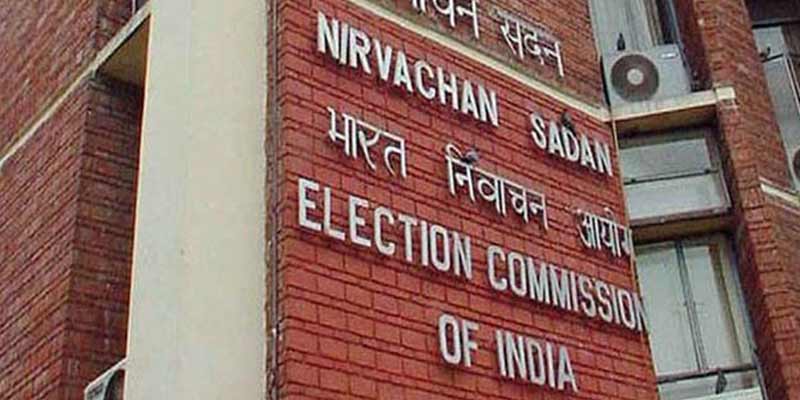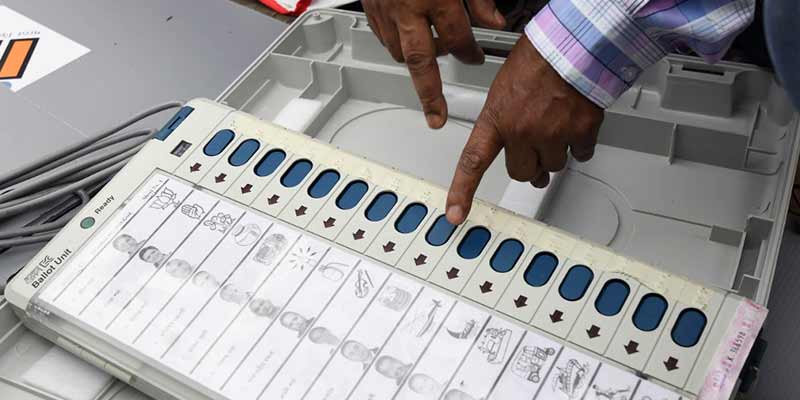- India
- Mar 03
Analysis / Collegium-like system to pick election commissioners
• In a landmark verdict, the Supreme Court on March 2 ruled that the appointment of the Chief Election Commissioner and election commissioners will be done by the President on the recommendation of a committee, comprising the Prime Minister, leader of the Opposition in the Lok Sabha and the Chief Justice of India.
• A five-judge constitution bench, headed by Justice K.M. Joseph, in its unanimous verdict said an unrelenting abuse of the electoral process over a period of time is the surest way to the grave of the democracy.
• The bench, also comprising Justices Ajay Rastogi, Aniruddha Bose, Hrishikesh Roy and C.T. Ravikumar, said the direction on the EC appointments will continue to hold good till a law on the issue is made by Parliament.
• The apex court said if the leader of the opposition in the Lok Sabha is not there, then the leader of the single largest opposition party will be in the committee to select the CEC and election commissioners.
• The bench delivered its verdict on a batch of pleas seeking a collegium-like system for the appointment of election commissioners and the Chief Election Commissioner.
• The Court also made an appeal that the Parliament may consider bringing in the necessary changes for a permanent secretariat for the Election Commission and charging its expenditure to the Consolidated Fund of India, so that the Election Commission of India becomes truly independent.
Election Commission of India
• Article 324(1) provides that the power of superintendence, direction, and control of the preparation of the electoral rolls for, and the conduct of, elections to Parliament and to the Legislature of every State and of elections to the offices of President and Vice-President held under the Constitution is vested in the Election Commission.
• As to the composition of the Election Commission, Article 324(2) provides that the Election Commission shall consist of the Chief Election Commissioner and such number of other election commissioners, if any, as the President may from time to time fix, and the appointment of the Chief Election Commissioner and other election commissioners, subject to the provisions of any law made in that behalf by the Parliament, be made by the President.
• Till a law is made, providing otherwise, the Founding Fathers have laid down that the appointment of the Chief Election Commissioner and other Election Commissioners shall be by the President.
• The Constitution of India follows the Westminster model of government. The powers of the President, it is well settled, is to be exercised on the advice of the Council of Ministers. The President is only the formal Head of the State.
• Only Chief Election Commissioners were appointed for the first four decades of the Republic.
• By an order dated October 1, 1993, the President has fixed the number of Election Commissioners as two, until further orders. The current composition of the Election Commission is that of Chief Election Commissioner and two election commissioners.
• Article 324(3) provides that the Chief Election Commissioner shall act as the chairman of the Election Commission.
• As regards the service conditions, Article 324(5) provides that subject to the provisions of any law made by Parliament, the conditions of service and tenure of office of the election commissioners and the regional commissioners shall be determined by the rules made by the President. In exercise of its power under Article 324(5), the Parliament has enacted the Election Commission (Conditions of Service of Election Commissioners and Transaction of Business) Act, 1991.
The Election Commission needs to be independent
• Indian democracy will work only when the institutions which have the responsibility to preserve democracy work. Each institution in our Constitution has its demarcated role, which can only be fulfilled if the people who are running these institutions are responsible.
• The people who run these institutions need to be accountable to the people, and therefore the process of selecting them has to ensure the independence of the institution.
• The Election Commission of India is an institution that has been created through the text of the Constitution. It is constitutionally an independent body. The role of the Election Commission of India is to ensure that the democratic process in India does not come to a standstill.
• To strengthen the democratic processes, the institution of the Election Commission needs to be independent and demonstrate transparency and accountability.
• Various state institutions supporting constitutional democracy have an independent mechanism for the appointment of its heads and members. The same is carried out with an object to keep them insulated from any external influence that allows them to remain neutral to carry on the assigned functions.
• An election commissioner is answerable to the nation. The people of the country look forward to him so that democracy is always preserved and fostered.
• A person, who is weak kneed before the powers that be, cannot be appointed as an election commissioner. A person, who is in a state of obligation or feels indebted to the one who appointed him, fails the nation and can have no place in the conduct of elections, forming the very foundation of the democracy.
• An independent person cannot be biased. Holding the scales evenly, even in the stormiest of times, not being servile to the powerful, but coming to the rescue of the weak and the wronged, who are otherwise in the right, would qualify as true independence.
• It is important that the appointment must not be overshadowed by even a perception that a ‘yes man’ will decide the fate of democracy and all that it promises.
• The electoral scene in the country is not what it was in the years immediately following the country becoming a Republic. Criminalisation of politics, with all its attendant evils, has become a nightmarish reality. The faith of the electorate in the very process, which underlies democracy itself, stands shaken.
• The fate of the political parties and its candidates, and therefore, of democracy itself to a great measure is allowed to rest in the hands of the Election Commission.
• While there may be officers who assist the Commission, vitally important decisions have to be taken by those at the helm of the affairs. It is the Chief Election Commissioner and the election commissioners at whose table the buck must stop.
• Criminalisation of politics, a huge surge in the influence of money power, the role of certain sections of the media where they appear to have forgotten their invaluable role and have turned unashamedly partisan, call for the unavoidable and unpostponable filling up of the vacuum.
• The decisions taken by the Election Commission need to generate the trust of the people so that the sanctity of the democratic process is maintained. If the Election Commission starts showing any arbitrary decision-making, then the resulting situation would not just create doubt on the members of the Election Commission of being biased but would create fear in the minds of the common citizens that the democratic process is being compromised.
• Therefore, the Election Commission needs to be independent and fully insulated from any external or internal disrupting environment.
• The working of the Commission has to generate confidence in the minds of the people. In a country like India, where millions of people still struggle to fulfill their basic needs, it is their right to vote which gives them hope that they would elect a government that would help them in crossing the boundaries of deprivation.
• If this power is compromised or taken away even by one slight bad decision or biases of the members of the Election Commission, it would undoubtedly attack the very basic structure of Indian democracy.
• Democracy can succeed only insofar as all stakeholders uncompromisingly work at it and the most important aspect of democracy is the very process, the electoral process, the purity of which alone will truly reflect the will of the people so that the fruits of democracy are truly reaped.
• The essential hallmark of a genuine democracy is the transformation of the ‘Ruled’ into a citizenry clothed with rights which in the case of the Indian Constitution also consist of Fundamental Rights, which are also being freely exercised and the concomitant and radical change of the ruler from an ‘Emperor’ to a public servant.
Manorama Yearbook app is now available on Google Play Store and iOS App Store



